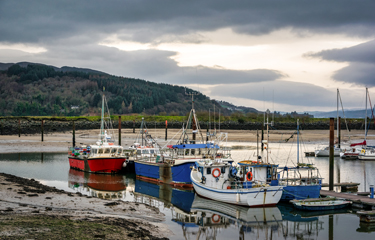With European Union fisheries ministers getting ready for their annual quota-setting negotiations next month, an Irish environmentalist group has been given leave by the High Court for a judicial review aimed at challenging the E.U. regulations setting 2020 fishing quotas under the bloc's Common Fisheries Policy (CFP).
The Friends of the Irish Environment (FIE) said it’s taking the action (a judicial review is a High Court review or examination of legislation or the decisions of lower courts) because of the E.U.’s failure to meet its own legally defined deadline of ending overfishing in all stocks by 2020.
The FIE wants the High Court to ultimately refer a case to the European Court of Justice, arguing the system of setting catch quotas contravenes the bloc’s Common Fisheries Policy.
Every December, fisheries ministers from across the E.U. meet to set the fishing limits, or total allowable catch (TACs) for the next year, drawing on advice from the International Council for the Exploration of the Sea (ICES) for catch levels that should not be exceeded to allow the stocks to recover and remain above sustainable levels.
Ireland is among E.U. member-states that have most actively advocated for higher-than-scientifically-advised TACs, along with Spain and France, according to FIE. However, the FIE said it’s not seeking the suspension of 2020 TACs.
“We do not want to harm fishing activities,” it said. “In fact, the motivation behind this case is to protect the Irish and European fisheries from collapse.”
In its case, the FIE said ICES advice for cod in the west of Scotland has zero-take for a number of years, but the TAC in 2020 actually increased to 1,279 metric tons (MT), of which 22 percent went to Ireland. Similarly, ICES advice for the Celtic Sea cod was also for zero catch, yet the 2020 regulation set the TAC at 805 MT, half of which was allocated to Ireland. Whiting and plaice are also cited in the pleadings, both of which received zero-catch ICES recommendations, but with Ireland benefiting from 57 percent and 44 percent, respectively, of the non-zero TACs set despite this advice.
The issues related to zero catches go to the heart of this case. Friends of the Irish Environment argues that the E.U. member-states have a political and legal obligation to follow the best available scientific advice for all stocks, whether they are targeted or caught as bycatch. Moreover, sustainable fisheries management requires taking a long-term perspective in balancing the social, economic, and environmental impact of fishing measures, the FIE claims in its suit.
Photo courtesy of shawnwil23/Shutterstock







